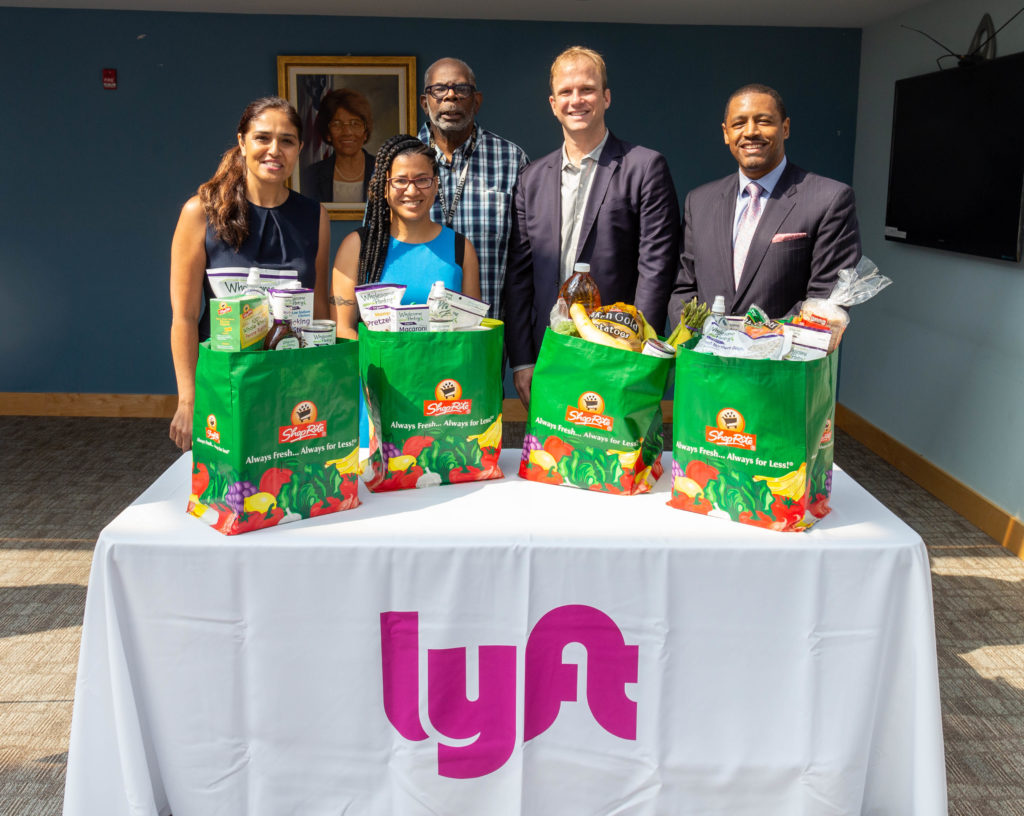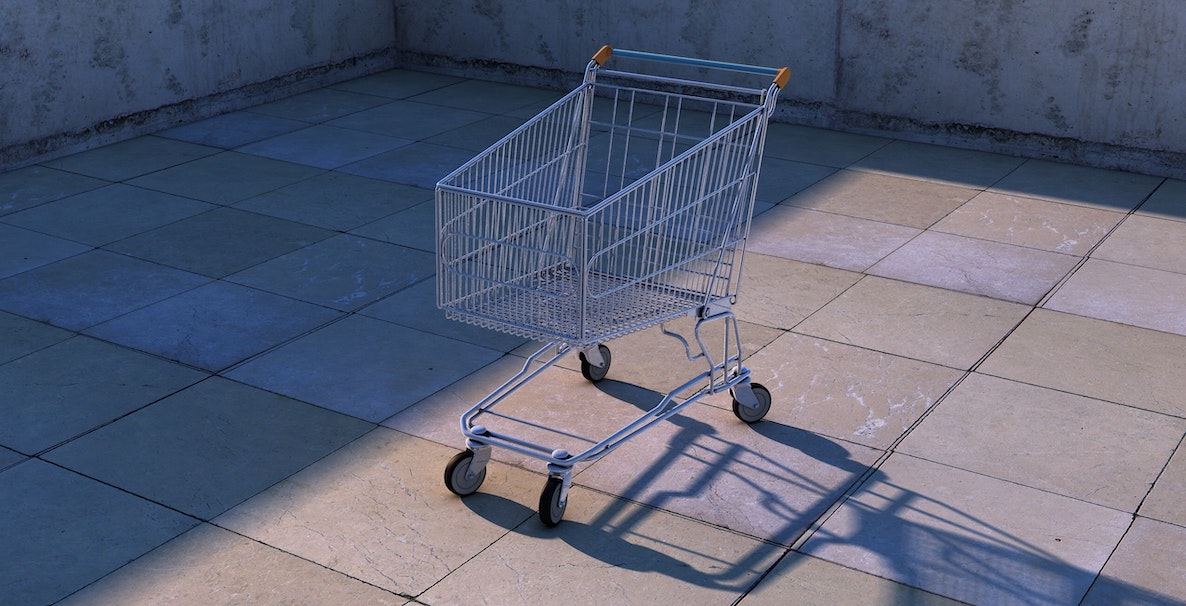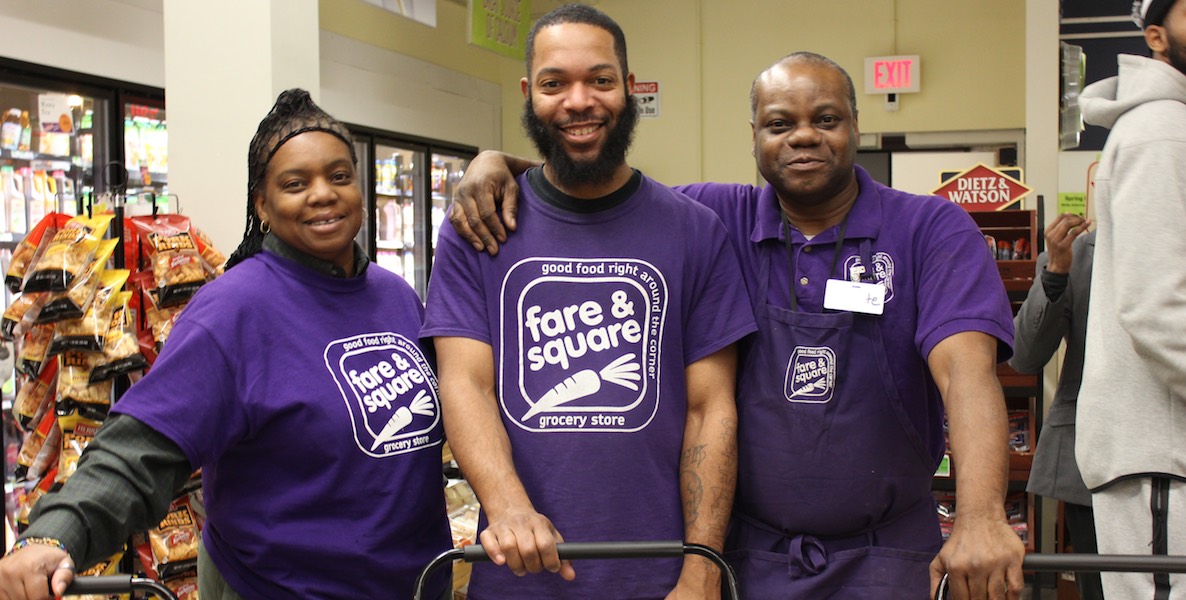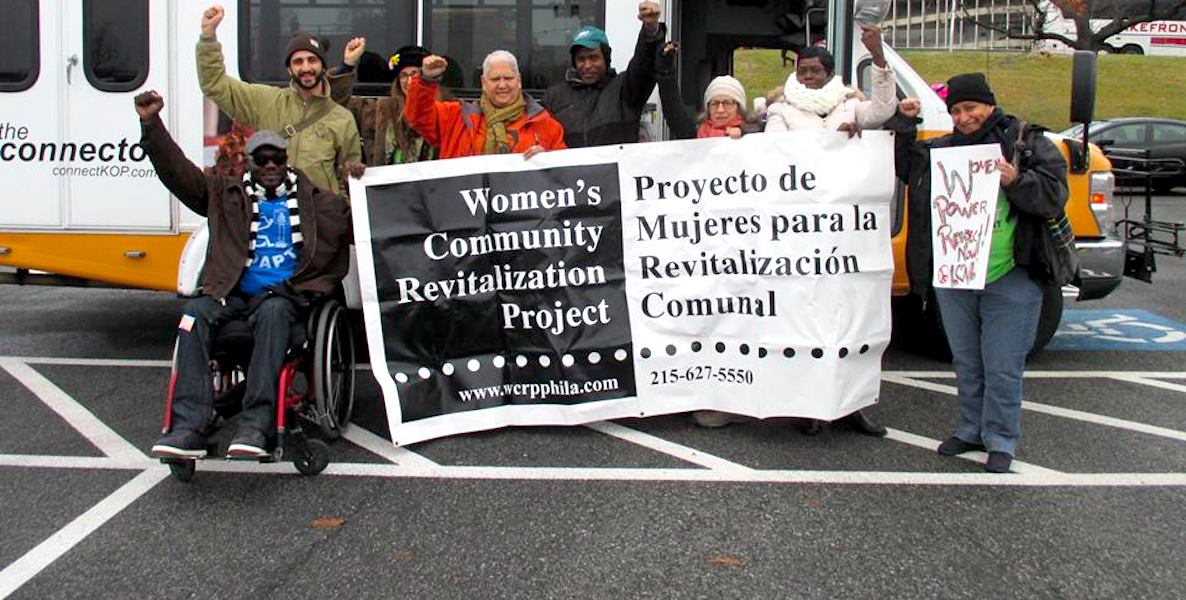It’s 10am on a summer Thursday, and from the sun-drenched atrium inside Nellie Reynolds Gardens, a cheery Philadelphia Housing Authority (PHA) property for seniors in North Philly, Albert Dukes is smiling.
A born-and-raised Philadelphian, Dukes says he has good reason to be happy: Lyft has just announced that, in September, it will launch a pilot program offering eight shared rides per month to residents of ten PHA properties, including his, for just $2.50 each way, as part of its Grocery Access Program. The initiative, which launched first in Washington, D.C. in 2018 and is already in place in nine other U.S. cities, is coming to Philly as a partnership between Lyft, PHA, and Uplift Solutions, the nonprofit that since 2009 has focused on creating increased access to healthy food and workforce development in underserved communities.
For Dukes, the program has the potential to be transformative.
“We recognize that food deserts are a major problem in Philadelphia and other cities and we want to reduce the barrier that is transportation,” he says. “We think this is the right thing to do in Philadelphia to help people get fresh and healthy groceries.”
“First of all, we’re seniors and mobility is a problem. Getting around in the neighborhood is a problem. So we appreciate all the help we can get,” he says. “But the biggest problem is that we’re on a fixed income. And sometimes we have to choose between food or paying for our medications.” He says that the sky-high prices of the taxis at the markets he visits are prohibitive. “They charge an arm and a leg, and we really can’t afford that.”
Support people affected by food desertsDo Something
Dukes is not alone. Food transportation barriers affect approximately 23.5 million people in the U.S. Cities have considered various interventions; this summer, Washington, D.C., for example, rolled out a program offering free taxi rides to grocery stores for residents of certain neighborhoods, through the end of September. And as countless studies have shown, access to grocery stores increases residents’ likelihood of consuming fresh, not processed, food.
“We’re happy that people can go back to a healthier lifestyle; it will bring down our cost of healthcare, it will increase longevity, and most importantly it will increase the quality of life for people,” says Pennsylvania State Senator Sharif Street, whose district includes the properties zoned for the program.
The Grocery Access Program will shuttle residents to one of two participating grocery stores: Fresh Grocer at 1501 N. Broad Street, and ShopRite at 2800 Fox Street. The latter is one of 10 ShopRite stores owned by Jeff Brown, who serves on Uplift’s board and is best known in Philly for his opposition to Mayor Kenney’s soda tax on the grounds that it is bad for the grocery business. As part of his mission, Brown is committed to nurturing the communities around his stores — keeping prices down so they are relatively affordable, building community rooms within stores for local organizations to hold meetings, providing employment opportunities for those with criminal records who often get overlooked.
Do-good work may be particularly on-trend in 2019, but Lyft’s leadership is putting muscle and money behind their mission: As an August 7 Forbes article detailed, since its IPO in March, Lyft has launched Lyft City Works to “make cities more livable,” funding it with either one percent of profits or $50 million annually, whichever sum is greater.
Skeptics might point to the challenges inherent in such a partnership: One obstacle to success could be the extent to which seniors, in particular, even have or use smartphones. PHA insists, however, that on-site staff will do whatever they can to support the tech needs of residents.
“There are going to be some technology challenges, that is a barrier for our community. But we have to start somewhere,” says Nichole Tillman of PHA’s press department.

Andrew Woolf, Lyft Regional Director of Pennsylvania, New Jersey, and Delaware, is hopeful that the six-month pilot will be a success, and can expand beyond its initial run.
Articles from Jessica PressRead Even More
“We recognize that food deserts are a major problem in Philadelphia and other cities and we want to reduce the barrier that is transportation,” he says. “We think this is the right thing to do in Philadelphia to help people get fresh and healthy groceries.” Do-good work may be particularly on-trend in 2019, but Lyft’s leadership is putting muscle and money behind their mission: As an August 7 Forbes article detailed, since its IPO in March, Lyft has launched Lyft City Works to “make cities more livable,” funding it with either one percent of profits or $50 million annually, whichever sum is greater.
Dukes, the North Philly resident is optimistic. “I’m so glad [about] Lyft and Uplift Solutions. Now I can have extra dollars to spend in the store,” he adds.
photo by Daniel Incandela via Flickr








